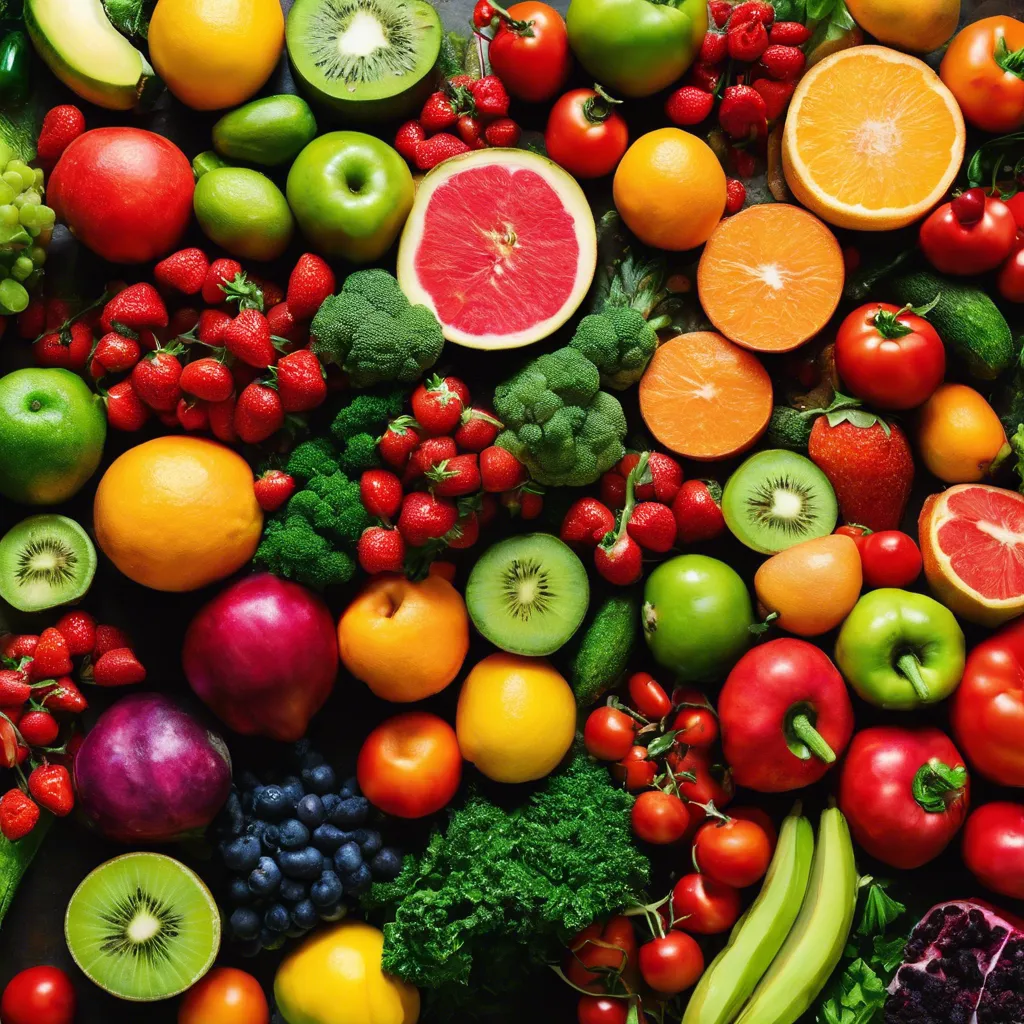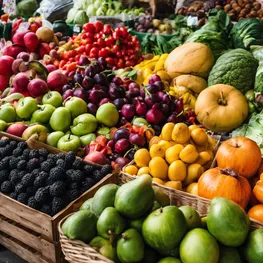Table of contents
- Demystifying Blood Sugar Levels
- How Your Diet Affects Blood Sugar Management
- Making the Right Ingredient Choices
- Cooking with Presence: Mindful Techniques in the Kitchen
- Tasty and Wholesome Meals for a Healthy Lifestyle
- Discover Effective Lifestyle Strategies for Managing Blood Sugar
In the quest for maintaining optimal blood sugar levels, mindful cooking has emerged as a powerful ally. This article explores the concept of mindful cooking and its role in creating delicious and natural recipes that promote blood sugar health. From mindful ingredient selection to cooking techniques that preserve nutritional value, discover how you can enhance your culinary creations while prioritizing your overall well-being.
Demystifying Blood Sugar Levels
Blood sugar plays a crucial role in the body and is essential for overall health and well-being. Understanding what blood sugar is and how it affects the body is important for maintaining optimal health. Let's delve into the details.
-
Definition of Blood Sugar
Blood sugar, also known as blood glucose, refers to the concentration of glucose present in the bloodstream. Glucose is the primary source of energy for our cells and is derived from the breakdown of carbohydrates in the food we consume. It is regulated by the hormone insulin, which is produced by the pancreas.
-
Normal Blood Sugar Levels
In a fasting state, the ideal blood sugar level is around 70-99 mg/dL (milligrams per deciliter). After a meal, blood sugar levels can rise temporarily, but they should return to normal within a few hours.
-
Effects of High Blood Sugar
Consistently high blood sugar levels can have serious consequences for the body. It can lead to chronic conditions like diabetes, heart disease, kidney damage, nerve damage, and vision problems. High blood sugar can also cause symptoms like increased thirst, frequent urination, fatigue, and slow wound healing.
-
Effects of Low Blood Sugar
Low blood sugar, known as hypoglycemia, can also be harmful. It occurs when blood sugar drops below 70 mg/dL. This can cause symptoms like dizziness, confusion, shaking, sweating, weakness, and in severe cases, loss of consciousness. It is crucial to treat low blood sugar promptly to prevent further complications.
-
Maintaining Blood Sugar Balance
To maintain healthy blood sugar levels, it is important to follow a balanced diet that includes complex carbohydrates, lean proteins, and healthy fats. Regular physical activity, stress management, and getting enough sleep also play a vital role in regulating blood sugar. For individuals with diabetes, monitoring blood sugar levels, taking prescribed medications, and following a personalized treatment plan is crucial.
How Your Diet Affects Blood Sugar Management
Maintaining healthy blood sugar levels is crucial for overall well-being and energy levels. Your diet plays a significant role in managing blood sugar levels, as different foods have varying impacts. Understanding how different foods affect blood sugar can help you make informed choices and maintain a balanced diet.
-
Carbohydrates: The Key Factor
Carbohydrates have the most significant impact on blood sugar levels. Foods rich in simple carbohydrates, such as sugar, white bread, and rice, are quickly broken down into glucose, leading to a rapid rise in blood sugar. On the other hand, complex carbohydrates, like whole grains, legumes, and vegetables, are digested more slowly, resulting in a gradual increase in blood sugar levels. It is important to choose complex carbohydrates to help maintain stable blood sugar levels throughout the day.
-
Fiber-Rich Foods: Blood Sugar Stabilizers
Foods high in dietary fiber, such as fruits, vegetables, and whole grains, help regulate blood sugar levels. Fiber slows down the absorption of sugar, preventing rapid spikes in blood sugar. Including fiber-rich foods in your diet not only contributes to better blood sugar management but also promotes digestive health and keeps you feeling full for longer.
-
Protein and Fats: Blood Sugar Moderators
When consumed with carbohydrates, protein and fats can help moderate the rise in blood sugar levels. Including lean proteins like chicken, fish, and beans, as well as healthy fats like avocados, nuts, and olive oil, in your meals can slow down the digestion process, resulting in a more gradual release of glucose into the bloodstream. This helps prevent sudden blood sugar spikes and promotes better overall blood sugar control.
-
Glycemic Index: Understanding Food Choices
The glycemic index (GI) measures how quickly and how much a particular food raises blood sugar levels. Foods with a low glycemic index, such as whole grains, lentils, and most fruits and vegetables, have a slower and more gradual impact on blood sugar. In contrast, high GI foods, like sugary snacks and white bread, cause a rapid spike in blood sugar levels. Opting for low GI foods can help maintain stable blood sugar levels and prevent drastic fluctuations throughout the day.
-
Individual Variations: Personalized Approaches
It is important to note that people's responses to different foods can vary. Factors such as genetics, metabolism, and overall health can influence how your body processes carbohydrates and manages blood sugar levels. Monitoring your blood sugar levels and consulting with a healthcare professional or a registered dietitian can help you develop a personalized dietary plan that suits your individual needs and supports optimal blood sugar management.
Making the Right Ingredient Choices
When it comes to making the right ingredient choices, selecting natural and unprocessed ingredients is of utmost importance. Here's why:
-
Nutritional Value
Natural and unprocessed ingredients are generally higher in nutritional value compared to their processed counterparts. They retain their original vitamins, minerals, and antioxidants, providing essential nutrients for a healthy diet.
-
Less Chemical Exposure
Choosing natural ingredients reduces our exposure to harmful chemicals commonly found in processed foods. Synthetic additives, preservatives, and artificial flavors can have negative effects on our health and may contribute to various diseases and allergies.
-
Better Taste and Flavor
Natural and unprocessed ingredients often have a better taste and flavor profile compared to their processed counterparts. They offer a genuine and authentic experience, allowing the true essence of the ingredient to shine through and enhance the overall culinary enjoyment.
-
Environmental Impact
Opting for natural and unprocessed ingredients promotes sustainability and reduces our ecological footprint. Processed food production often involves excessive energy consumption, packaging waste, and contributes to deforestation. By choosing natural ingredients, we support environmentally-friendly practices and help preserve our planet.
Cooking with Presence: Mindful Techniques in the Kitchen
Mindful cooking techniques can help manage blood sugar levels by promoting a balanced approach to food preparation. By practicing mindfulness in the kitchen, individuals can make healthier choices, control portion sizes, and reduce stress, all of which are essential for maintaining stable blood sugar levels.
Tasty and Wholesome Meals for a Healthy Lifestyle
Are you searching for delicious and nourishing recipes that promote a healthy lifestyle? Look no further! We have a collection of natural recipes that are not only low in added sugars but also packed with essential nutrients. These recipes will not only satisfy your cravings but also support your overall well-being.
-
1. Green Smoothie
Kickstart your day with a refreshing green smoothie. Blend together spinach, kale, banana, and coconut water for a nutritious and low-sugar beverage. This smoothie is loaded with fiber, vitamins, and antioxidants.
-
2. Quinoa Salad
Enjoy a hearty and nutritious quinoa salad. Mix cooked quinoa with colorful vegetables like bell peppers, cucumbers, and cherry tomatoes. Add a squeeze of lemon juice and a drizzle of olive oil for a zesty flavor. Quinoa is a great source of protein and essential amino acids.
-
3. Oven-Roasted Veggies
Roast a variety of vegetables, such as broccoli, cauliflower, and carrots, in the oven for a flavorful and nutrient-packed side dish. Season with herbs and spices like garlic, paprika, and thyme. These veggies are low in calories and high in vitamins and minerals.
-
4. Chia Pudding
Indulge in a delicious and healthy chia pudding. Mix chia seeds with your choice of milk, such as almond or coconut milk, and sweeten with a natural sweetener like honey or maple syrup. Chia seeds are rich in omega-3 fatty acids and provide a boost of energy.
-
5. Baked Salmon
Savor a delectable baked salmon dish. Marinate salmon fillets with lemon juice, garlic, and herbs like dill or parsley. Bake until flaky and serve with a side of roasted vegetables or a fresh salad. Salmon is an excellent source of omega-3 fatty acids and protein.
Discover Effective Lifestyle Strategies for Managing Blood Sugar
If you're looking for effective lifestyle strategies to help manage your blood sugar, look no further. Incorporating regular exercise and stress reduction techniques into your daily routine can have a profound impact on your overall health and well-being. Here are some tips to get you started:
- Make exercise a priority: Engaging in regular physical activity can help improve insulin sensitivity and lower blood sugar levels. Aim for at least 30 minutes of moderate-intensity exercise, such as brisk walking or cycling, most days of the week.
- Choose activities you enjoy: Find an exercise routine that you truly enjoy, whether it's dancing, swimming, or playing a sport. This will make it easier to stick with it in the long run.
- Manage stress: Chronic stress can contribute to elevated blood sugar levels. Practice stress reduction techniques such as deep breathing exercises, meditation, or yoga. Find activities that help you relax and unwind.
- Get enough sleep: Lack of sleep can affect your body's ability to regulate blood sugar. Aim for 7-8 hours of quality sleep each night to optimize your blood sugar management.
- Maintain a healthy diet: Focus on consuming whole foods, including fruits, vegetables, lean proteins, and whole grains. Avoid sugary beverages and processed foods, as they can cause blood sugar spikes.
- Monitor your blood sugar levels: Regularly check your blood sugar levels to track your progress and make necessary adjustments to your lifestyle and treatment plan.
In conclusion, mindful cooking is not just about creating delicious recipes, but also about prioritizing our blood sugar health. By using natural ingredients and paying attention to portion sizes, we can support stable blood sugar levels and prevent spikes that can lead to various health issues. Mindful cooking encourages us to take a proactive approach towards our well-being and make informed choices about the food we consume. With a little mindfulness in the kitchen, we can enjoy flavorful meals while promoting our overall health and vitality.
Frequently asked questions related to creating delicious recipes
What is mindful cooking?
Mindful cooking is the practice of being fully present and engaged in the cooking process, paying attention to each step and ingredient. It involves a conscious awareness of how the food we prepare affects our body and mind.
What are some tips for mindful cooking?
Some tips for mindful cooking include planning meals ahead of time, using fresh and organic ingredients, reducing processed foods, experimenting with herbs and spices instead of excessive salt and sugar, and enjoying the cooking process by practicing gratitude and mindfulness.
Can you give an example of a mindful recipe for blood sugar health?
Sure! A mindful recipe for blood sugar health could be a vegetable stir-fry with tofu, using a variety of colorful vegetables like broccoli, bell peppers, carrots, and mushrooms. The sauce can be made with low-sodium soy sauce, ginger, garlic, and a touch of honey or a natural sweetener like stevia.
Are there any specific ingredients to avoid for blood sugar health?
Yes, for blood sugar health it is best to avoid refined sugars, sugary beverages, processed grains, and high-glycemic fruits. These foods can cause rapid spikes in blood sugar levels.
How does mindful cooking benefit blood sugar health?
Mindful cooking promotes the use of whole, natural ingredients that are low in sugar and high in nutrients. By choosing foods with a low glycemic index and avoiding processed sugars, mindful cooking helps regulate blood sugar levels and prevent spikes and crashes.







